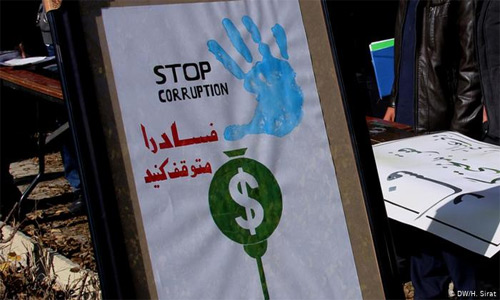After the World War II, the European powers such as Britain, France and Germany lost their power, but two new powers that led the Communist system and the capitalist system emerged in the ground of global power competition. These two new powers were the Soviet Union and the United States that competed for half a century but the United States won the long power competition during Ronald Reagan’s presidency.
In the early 1990s, Francis Fukuyama put forward the theory of the end of history that liberal democracy would have the ultimate victory and the war of ideologies would no longer take place as America had established its global position as hegemonic power. It took no longer that new challenges emerged against American universal hegemony like rise of Islamic fundamentalism led by al-Qaeda and its allies, the re-empowerment of Russia, and the miraculous economic development of China were among the most significant challenges against the US foreign policy. In order to get rid of Islamic fundamentalism, the US invaded Afghanistan on October 7, 2001 and toppled the Taliban regime and also weakened other terrorist networks.
The invasion on Iraq in March 2003 and the subsequent escalation of sectarian tensions and deadly al-Qaeda attacks in Iraq made the United States unable to properly pay attention to Afghanistan. Recently the Washington Post informed of accessing to a 2,000 page surveys containing interviews of 400 people involved in the Afghan war disclosing various factors failed the US war in Afghanistan. Now that we have passed nearly two decades, there is no clear prospect of the US success in combating against terrorism, poppy cultivation, corruption and democratic government. So, the main question is what is the most important factor behind the US failure in Afghanistan? Given the Washington Post’s findings, we can highlight three important factors as following:
Firstly, corruption is a widespread phenomenon in all weak states, but the level of corruption varies from one country to other country. The Washington Post reports indicate that a large volume of money which was injected in Afghanistan has been a major driver for corruption expansion. The money was injected to accelerate the progress, regardless of the capacity whether it is absorbed or not. In the beginning of its engagement in Afghanistan, the United States was aware that corruption is a barrier against state-building and it would be difficult and time-consuming to tackle the challenge once it rooted in the new government. When a new government is built after decades of war, it is a very serious risk that the lack of serious monitoring and management may tempt officials to commit corruption. According to the report, when large amounts of money flowed into Afghanistan, there was neither a sufficient capacity to absorb it (for example, there was no specialized manpower to carry out the projects in question), and nor there was a serious supervision to ensure transparency. One of interviewees who had experience of working at an air base narrated that many employees at the base were smelling gasoline because they stole the plane fuel and then sold them to the black market. In addition to the Washington Post report, the education and higher education sector can be mentioned as an example. Despite millions of dollars in aid in these areas, some of the students still study in sunshine and old tents in many parts of the country, although some of these schools were registered in the mid-2000s.
Secondly, misidentification of priorities and also lack of understanding of Afghanistan mentioned as another factor. This report clearly states that the US did not correctly identify priorities after the overthrow of the Taliban terrorist regime in Afghanistan. Afghanistan is mainly an agricultural country and most of its important export and economic products belong to agriculture but the United States has tried to invest on education without attention to their occupational and economic prospect once they graduate. According to the report findings, the lack of investment on economic and agricultural infrastructure has also challenged the education and nation-building process. Today, when we look at education and even higher education in the country, we see some progress but the question of quality remains an important issue. The universities in Afghanistan produce only job seekers who are added to the number unemployed while the universities are expected to create entrepreneurships. The low quality education not only failed to change the condition but also add to the problems. Because of unemployment problems in the country the educated and uneducated youths are compelled to seek illegal ways of a living to support their families. They join the terrorist groups such as Taliban and ISIS or the opium traffickers. The result is a failure in the nation-building process, which also pave the ground of failure against terrorist groups.
Lastly, according to the report, the Bush, Obama, and Trump administrations knew that the process of counterterrorism and nation-building faces serious difficulties in Afghanistan, but for the sake of its interests within the United States and keeping public opinion calm they falsely exaggerate casualties of enemy in the war and under report their own victims. When a small or large program is misleading, its continuation will not produce the desired results unless the mistakes are identified and take corrective action. The primary goal of the United States and its international allies in Afghanistan were not only to change ruling regime, but also destroy the bases of terrorists, eliminate opium trafficking and corruption. Unfortunately, after 18 years war with consumption of nearly one trillion dollars, the US has not effectively achieved its goals in the country. This shows that the continuation of the current process may not lead to a favorable outcome.
Home » Opinion » Washington Post: Corruption Is the Main Factor of the US Failure in Afghanistan
Washington Post: Corruption Is the Main Factor of the US Failure in Afghanistan
| Mohammad Zahir Akbari

